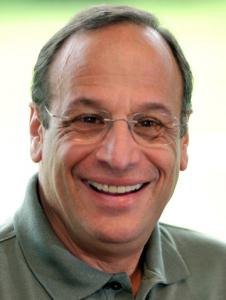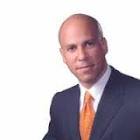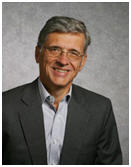iEvening’s Power Pitch session took on a new twist when we invited noted pitch consultant, Laura Allen to join our workshop. This gave entrepreneurs a chance to test their pitches, have the group break them down and let Laura help them build it back up again according to her proven 15 second pitch formula.
They key to pitches is that you really have understand everything about you and your plan and then ruthlessly cut it down to the absolute essentials. They also have to be the ones that matter to the appropriate investors. Most important – you have to establish your credibility as the person to deliver and execute the plan. You also need to know how to read an investor so as to calibrate your pitch and then give them the right call to action.
SWING IT – DON’T WING IT
In the real world, this is harder than mastering a golf swing. Sure, some people just get it but everyone else has to really work at it. That’s why we have a standing room only workshop!
What takes the Power Pitch workshop to another level and delivers a steady stream of rave reviews is unique is that we take you to the next level and introduce you to the really big picture: how do investors actually perceive a pitch? We call this the symbolic dimension and it is distilled form our experience of listening to investors after thousands of entrepreneurs “have left the room. “
What investors come up with is not necessarily what you think. This is especially true in the Start-Up world where business ideas change so much that it really is more about who you are rather than what you pitch. Or as they say, it’s the jockey not the horse they’re betting on. So investors have ways of figuring out who you really are that having nothing to do with the text of your pitch. That is why I have seen a barefoot engineer in his 20’s from Palo Alto get funding while a savvy exec in a suit got a pass. One look credible for his space while the other didn’t.
The symbolic dimension is simply the way in which investors scan you for the information that matters to them. And they all have their little rules of thumb. If you figure that out you will get funding, or supporters, followers and everything else you need to succeed.
In other words, investors see your pitch as a coded enactment of their future business relationship with you. How you present yourself, whether you ramble, whether you are too sure and so on, tells them the following:
1. Are you coachable?
(Ever wonder why some really bad pitches get funded. Ever wonder why Apple’s management actually fired Steve Jobs? Being a great entrepreneur can mean less than their ability to take guidance.)
2. Are you specially qualified to do this?
You don’t have to be the expert – in fact, that can work against you because then you wouldn’t be coachable. The issue is whether you have the ability to execute - so your track record in any related way, really matters.
3. Will your respond to the marketplace? Every idea is great until the market gets to see. Mostly they ignore it or hate it and so you have to adjust or “pivot” – but in a way that doesn’t lose the essence of the idea. Most entrepreneurs believe they are right and the market is wrong. Investors generally avoid those kinds of entrepreneurs.
4. Will you be on budget? Fiscal discipline, without going overboard is a big plus. So, for example don’t invite the investor to a fancy restaurant – share a sandwich. If you own a BMW don’t drive it to your meetings unless you want them to think you don’t need the money. Talk big but act frugal.
5. Can you survive the inevitable draught? All stat-ups will face times of low cash and no sales. It’s the ones who can overcome that who matter. Most investors can sniff out a survivor but what they really want is a winner. Someone who can turn adversity into a plus. Find an example in your past that illustrates this.
6. If there is a known objection to your plan – start with your response to it. For example – you are a me-too company in a crowded space. You have a big liability risk. The market is not growing. Investors will find this weakness in a heartbeat but if you confront it by describing your solution – you can win them over.
THE PITCHERS & THE VCs
As if on cue, on of the iEvening’s Investors, David Beatty of Goldenseeds took measure of how long the speakers went over their 4 minute limit and predicted how much they would go over budget. Yet very presenters adjusted to their pitches in response to that.
There was number of medically related pitches since this is a growing marketplace. This is a perfect storm: an aging nation that lives longer with meds meets digital solutions and a relaxed approach by the FDA.
The iEvening’s winner was AgSquared – an arguably unlikely winner since New York investors are not known for their interest in farming. But in this case, by tapping into the locavore and health consciousness movement and adding the Pitch Panel insight about mentioning mobile data collection and delivery - the idea of providing big time farm ERM software as a freemium sevice for small farmers struck a chord.
The crowd choice was Gift Side Story, a site that helps people, particularly men, buy gifts for their loved ones with a kind of online concierge.
The other presenters were:
Brouha which provides an RFID-based customer tracking system for retailers.
Ross Medical offers a low cost alternate ER patient management system for low-risk chest pain patients
Medsonics US, Inc. is handheld dvice that scan scan for stress fractures
RF Telematics is a HIPA compliant secure wireless network for Medical data transmission
Eco-Auger is a high efficiency, low impact, water motion power generator.
Additional pitches on the program were:
Lessonwriter – an online service lesson capture and development for teachers.
BP Wiz (Book Publishing Wiz) an online gateway for book proposals to publishers.
The Athlete’s Network: a system that brings high school athletes to the attention of college coaches.
FreezeCrowd, Inc: a college social network that interactivelyconnects people through group photos with their friends
Read our thinkpiece on "'Occupy Wall Street' as the Tea Party for Social Media"








